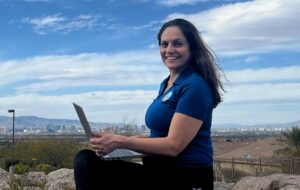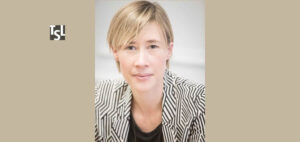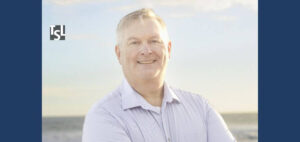Innovating Equitable Climate Resilience Solutions for the World’s Most Vulnerable
Global climate change has become one of the most pressing concerns of our time, reshaping how societies understand and interact with the planet. The interconnectedness of climate systems means that local disruptions often ripple across continents, magnifying vulnerabilities in already fragile regions. As our global climate changes, so does the urgency to develop adaptive and resilient strategies that address development sustainability and the socio-economic well-being of affected communities. These challenges, from rising sea levels to unpredictable weather patterns, underscore the importance of proactive and inclusive global efforts to tackle climate risks and secure a sustainable future for all.
Dr. Arame Tall, Senior Climate Specialist at the World Bank and a Climate Adaptation & Resilience Global Advocate, demonstrates visionary leadership in addressing these challenges. With a profound understanding of climate science and a deep commitment to equitable solutions, she has emerged as a champion for vulnerable populations worldwide. Her leadership approach focuses on collaboration, innovation, and the power of inclusive dialogue to drive transformative action. By bridging diverse expertise and developing partnerships, Dr. Tall continues to shape the global discourse on climate adaptation and resilience with a unique blend of technical knowledge and compassionate advocacy.
Through her work in the World Bank, as a key global institution, she has been at the head of supporting initiatives that address the multifaceted impacts of climate change. By integrating climate action with targeted investments, the World Bank mobilizes large-scale finance, analytics and its convening platform to addresses immediate needs and lays the groundwork for long-term climate adaptation strategies. Under the guidance of experts like Dr. Tall, these efforts continue to deliver meaningful and measurable outcomes for those most affected by the climate crisis. Through initiatives such as its Climate Adaptation & Resilience Action Plan, its new flagship Country Climate & Development Reports, and on-the-ground projects like the Burundi Collines Climate Resilience Project, the organization establishes its dedication to strengthening the climate resilience of vulnerable communities.
Let’s explore Dr. Tall’s proactive leadership and vision in the global fight against climate change:
An early calling to address Global Climate Impacts
When she started her career 20 years ago, Dr. Tall never planned to work on climate change. The turning point occurred when she applied after graduating from Smith College to a PhD at Columbia University to work with Prof. Jeffrey Sachs, but instead was accepted to join one of the first cohorts of global scholars entering the new master’s degree on climate and society at Columbia University. They responded to her application with an offer of a full scholarship, asking if she would like to spend the next 18 months learning about climate change and its global impacts. She immediately responded: “why not!”
This was 2007, and the world was unaware of the climate crisis looming ahead. She started her master’s degree in Climate & Society at Columbia, one of the first training programs at the time looking at the intersection of climate change and societal impacts, and her eyes opened wide. She learned about the physical basis of climate change, the extent of the damage humans were causing to the planet, and saw the projected future impacts of climate change expected globally, and most specifically on her home continent of Africa, where some of the worst impacts—cataclysmic disasters, rising sea levels and unprecedented disruptions to local weather patterns—were projected to occur, wreaking havoc for her people in Africa.
Resilience of Communities and Women
Through her extensive global career since then, Dr. Tall has carried her pilgrim stick touring the world and supporting climate adaptation for the most vulnerable communities at the frontlines of climate impacts —she has toured 50 of Africa’s 53 countries to see the impacts of climate change up close, from rural, dry, arid south Madagascar and Angola to Burundi’s lush green northern forests and cross the Sahel. She has lived in Andhra Pradesh (India)’s arid drylands, where she was based working for ICRISAT, to Cali (Columbia)’s steep hills at CIAT headquarters. She ended her time with the CGIAR based at IFPRI in Washington DC, before taking an assignment with the World Meteorological Organization (WMO) based in Geneva, where she was entrusted to open and direct the first regional office for Africa of the Global Framework for Climate Services (GFCS), based out of Dakar (Senegal). Before this, she had worked for UNDP and the Red Cross/Red Cross International Federation, innovating solutions to link early warning alerts with early action and forecast-based financing.
Across the board and through her extensive travels, the resilience of communities—including the grit of women—has reminded her that it is necessary to continue fighting for the inclusion of the needs of those often left out of closed-door conversations that determine where finance and resources go.
Achieving Cross-Cutting Climate Solutions
She finds getting humans to work together across sector and institutional silos and join hands a problematic task. Whether in the World Bank or in the United Nations, governments she’s supported in Africa, local communities across South Asia and Small-Island developing nations, and across the board, she has had to exert diplomacy, dexterity, and expertise to lead colleagues, counterparts, and allies to work together to achieve cross-cutting climate solutions that work, and mobilize financing for the people most vulnerable to climate impacts—unable to advocate for their own needs. Bridging the gap in the chain linking climate information with early climate action and preparedness, and involving everyone across sectors of expertise has yielded the best impacts she has ever delivered. It truly does take a team! In the famous words of Kenyan Nobel Peace Prize laureate Wangari Maathai, she’s very conscious of the fact that you can’t ever do it alone: “It’s teamwork. When you do it alone you run the risk that when you are no longer there nobody else will do it”.
What do equitable climate resilience solutions for the poorest look like?
Dr. Tall will point to The World Bank’s recently approved project in Burundi —one of the world’s poorest yet most beautiful countries she’s ever been to — where she has recently led the design and Board approval of a project to secure $90 million in financing to pay for Burundi’s climate resilience efforts across its vulnerable land degraded collines. The fully grant-funded project has funds earmarked to directly assist fragile communities in Burundi and support their efforts to face intensifying climate impacts (landslides, floods, storms), restore land productivity and rebuild fragile community ties frayed by decades of conflict and land strife. The $90 million project is co-financed by IDA for $70 million with a grant from the Global Environment Facility for $20 million (for a total project financing of $90 million). The project objective is to increase land productivity and climate resilience of fragile communities in targeted collines in Burundi. She sincerely hopes the project will achieve its impact to (i) strengthen the enabling environment for climate resilience in Burundi; (ii) make investments in the sustainable restoration and management of watersheds across target hotspots that experience combined climate, land loss, and fragility risks; and (iii) provide new jobs and climate-resilient livelihood opportunities to rural colline community beneficiaries.
Dedication to Unified Climate Solutions
She believes bridging the gap is both an art and a science. It requires tools—such as “the magic happens here” tools created by her beloved mentor and friend Pablo Suarez from the Red Cross/Red Crescent Climate Center, who always found innovative tips to bring communities together from COP leaders to islanders before he left in 2024. It also requires great passion and dedication to make hearts and minds click and commit to working together to find common ground and joint solutions at the margins of current institutional and sectoral silos to leave the world a better place than we’ve found it.
People-Centric Climate Advocacy
Dr. Tall’s experience with the Red Cross taught her to keep people at the Centre of everything she does. Community needs drive every action she takes and every advocacy speech she makes. It is the lens she has maintained throughout her career. Being initially trained as an anthropologist in undergraduate also helped in developing this lens.
Addressing our New Climate Normal
According to Dr. Tall, a global compact on adaptation is needed, where every country sees what is seen in the crystal ball of climate science and projected climate impacts, to guide foresight and early action to avert the worst of the climate crisis.
In her early career years, she was focused on working to avert the chronicle of a predicted catastrophe. But today, as we now find ourselves in the eye of the cyclone, she focuses on supporting policy change and on-the-ground investments that will help the world’s most vulnerable countries and communities to brace for what will continue to come: exceeding sea levels, cyclones and storm tracks, reversed seasons, and a new climate normal.
She highlights raising the alarm level and securing the financing needed to prepare for climate action before it is too late. Climate adaptation is a multi-disciplinary challenge that requires cooperation across sectors. Dr. Tall has evidenced this by leading the successful cross-sector collaborations which delivered the Country Climate & Development Reports for Angola, Madagascar, Burundi and Senegal/the Gambia.
Advice for Aspiring Climate Professionals
Dr. Tall advises young professionals who want to follow in her footsteps and make a meaningful impact in this field to: “Skill up!”. Learning and understanding the scientific basis of climate change and the impacts climate will wreak today and throughout our lifetime is an essential launchpad to have an impactful career in climate. Based on solid knowledge, action can be urged, and creative, impactful solutions mobilized. She strongly believes that women climate scientists, in particular, will be needed to sew together the teams, humans, hearts, and brains to deliver humanity’s future.


